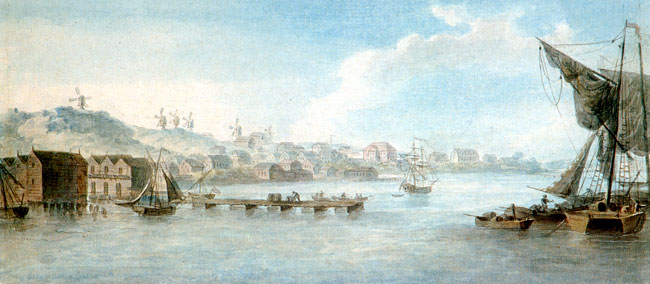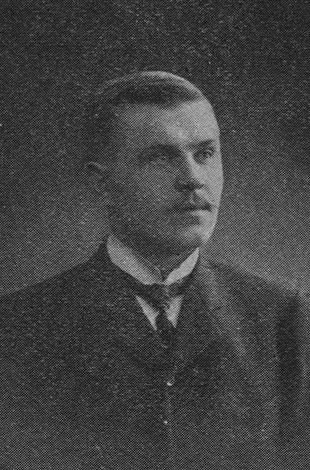|
Pernå
Pernå (, Sweden ; ) is a former municipality of Finland. Pernå is located in the province of Southern Finland and was part of the Eastern Uusimaa region. The municipality had a population of 3,961 (31 December 2009) and covered an area of of which is water. The population density was . The municipality was bilingual, with the majority being Swedish and minority Finnish speakers. Pernå is the oldest municipality in the Eastern Uusimaa region. The current municipalities of Lapinjärvi, Liljendal and Loviisa were originally part of it. Mikael Agricola, the founder of written Finnish was born in Pernå in the early 16th century. He is also considered to be the "Reformator of Finland" in the transfer from Catholicism to Lutheranism. Situated conveniently by the coast, and engulfing also a small river, the lands of Pernå were attractive at a time when waterways rather than proper roads provided the means of transport. There are a number of manor houses in the Pernå area ... [...More Info...] [...Related Items...] OR: [Wikipedia] [Google] [Baidu] |
Loviisa
Loviisa (; ; formerly Degerby) is a town in Finland, located on the southern coast of the country. Loviisa is situated in the eastern part of the Uusimaa region. The population of Loviisa is approximately , while the Loviisa sub-region, sub-region has a population of approximately . It is the most populous Municipalities of Finland, municipality in Finland. Loviisa is located from Helsinki and from Porvoo. The municipality covers an area of of which is water. The population density is . The neighboring municipalities of Liljendal, Pernå and Ruotsinpyhtää were consolidated with Loviisa on 1 January 2010. Loviisa is a bilingual municipality with Finnish language, Finnish and Swedish language, Swedish as its official languages. The population consists of Finnish speakers, Swedish speakers, and speakers of other languages. Loviisa was founded in 1745, as a border fortress against Russia. Most of the fortifications have been preserved. Loviisa was originally called ''Deg ... [...More Info...] [...Related Items...] OR: [Wikipedia] [Google] [Baidu] |
Mikael Agricola
Mikael Agricola (; c. 1510 – 9 April 1557) was a Finnish Lutheran clergyman who became the de facto founder of literary Finnish and a prominent proponent of the Protestant Reformation in Sweden, including Finland, which was a Swedish territory at the time. He is often called the "father of literary Finnish". Agricola was consecrated as the bishop of Turku (Åbo) in 1554, without papal approval. He continued the reform of the Finnish church (then a part of the Church of Sweden) along Lutheran lines. He translated the New Testament into Finnish and also produced the prayer book and hymns used in Finland's new Lutheran Church. This work set the rules of orthography that are the basis of modern Finnish spelling. His thorough work is particularly remarkable in that he accomplished it in only three years. He died of sudden illness while returning from a trip during which he assisted in negotiating the Treaty of Novgorod with the Tsardom of Russia. Biography Early life Michael ... [...More Info...] [...Related Items...] OR: [Wikipedia] [Google] [Baidu] |
Ola Rosendahl
Ola Mikael Rosendahl (1 October 1939, in Pernå – 17 March 2008) was a Finnish agronomist, farmer and politician. He was a member of the Parliament of Finland from 1995 to 2003, representing the Swedish People's Party of Finland The Swedish People's Party of Finland (SPP; , SFP; , RKP) is a Finnish political party founded in 1906. Its primary aim is to represent the interests of the minority Swedish-speaking population of Finland. The party is currently a participant i ... (SFP). References {{DEFAULTSORT:Rosendahl, Ola 1939 births 2008 deaths People from Pernå Swedish-speaking Finns Swedish People's Party of Finland politicians Members of the Parliament of Finland (1995–1999) Members of the Parliament of Finland (1999–2003) University of Helsinki alumni ... [...More Info...] [...Related Items...] OR: [Wikipedia] [Google] [Baidu] |
Ernst Von Born
Baron Ernst Viktor Lorenz von Born (24 August 1885, Pernå, Grand Duchy of Finland - 7 July 1956) was a Finnish lawyer, farmer and politician. He served as Minister of the Interior from March 1931 to December 1932 and from December 1939 to May 1941, Minister without Portfolio in 1939 and Minister of Justice from 8 August to 17 November 1944. He was a member of the Parliament of Finland from 1919 to 1954, representing the Swedish People's Party of Finland (SFP). He was the chairman of the SFP from 1935 to 1945 and again from 1955 to 1956. During the Continuation War The Continuation War, also known as the Second Soviet–Finnish War, was a conflict fought by Finland and Nazi Germany against the Soviet Union during World War II. It began with a Finnish declaration of war on 25 June 1941 and ended on 19 ..., he was one of the signatories of the "Petition of the Thirty-three", which was presented to President Ryti by members of the Peace opposition on 20 August 1943. Ref ... [...More Info...] [...Related Items...] OR: [Wikipedia] [Google] [Baidu] |
Oscar Johansson (politician)
Oscar Wilhelm Johansson (22 February 1882, Pernå - 31 May 1947) was a Finnish lawyer, civil servant and politician. He was a member of the Parliament of Finland from 1907 to 1908, representing the Social Democratic Party of Finland The Social Democratic Party of Finland ( , SDP, nicknamed: ''demarit'' in Finnish; , SD) is a social democratic political party in Finland. It is the third-largest party in the Parliament of Finland with a total of 43 seats. Founded in 1899 as ... (SDP). References {{DEFAULTSORT:Johansson, Oscar 1882 births 1947 deaths People from Pernå Politicians from Uusimaa Province (Grand Duchy of Finland) Swedish-speaking Finns Social Democratic Party of Finland politicians Members of the Parliament of Finland (1907–1908) University of Helsinki alumni ... [...More Info...] [...Related Items...] OR: [Wikipedia] [Google] [Baidu] |
Liljendal
Liljendal is a former municipality of Finland. It is located in the province of Southern Finland and was part of the Eastern Uusimaa region. The municipality had a population of 1,472 (31 December 2009) and covered an area of of which is water. The population density was . The municipality was bilingual, with majority (74.9%) being Swedish and minority (23.8%) Finnish speakers. The municipality has previously also been known as Liljentaali in Finnish documents. Liljendal was consolidated to Loviisa, together with Pernå and Ruotsinpyhtää, on January 1, 2010. History Liljendal was originally the name of a seat farm (säteri) in the village of Sävträsk. Its name may have been derived from that of an old Cistercian monastery in Lower Saxony, ''Lilienthal''. At the time, it was a part of the Pernå Pernå (, Sweden ; ) is a former municipality of Finland. Pernå is located in the province of Southern Finland and was part of the Eastern Uusimaa region. The municipali ... [...More Info...] [...Related Items...] OR: [Wikipedia] [Google] [Baidu] |
Former Municipalities Of Finland
This is a list of the former municipalities of Finland. Contents: A B C D E F G H I J K L M N O P Q R S T U V W X Y Z Ä Ö __NOTOC__ A * Ahlainen (Swedish: Vittisbofjärd) – became part of Pori in 1972 * Aitolahti (Swedish: Aitolax) – became part of Tampere in 1966 * Akaa (Swedish: Ackas) – divided in 1946 between Toijala, Kylmäkoski, Sääksmäki and Viiala. The name was re-introduced in 2007 when the municipalities of Toijala and Viiala were consolidated. * Alahärmä – consolidated with Kauhava in 2009 * Alastaro – consolidated with Loimaa in 2009 * Alatornio (Swedish: Nedertorneå) – became part of Tornio in 1973 * Alaveteli (Swedish: Nedervetil) – consolidated with Kronoby in 1969 * Angelniemi – became part of Halikko in 1967 * Anjala – consolidated with Sippola in 1975 to form the Anjalankoski market town * Antrea (Swedish: S:t Andree) – was lost to the USSR in 1944 * Anttola – became part of Mikkeli in 2001 * ... [...More Info...] [...Related Items...] OR: [Wikipedia] [Google] [Baidu] |
Ruotsinpyhtää
Ruotsinpyhtää (; ) is a List of former municipalities of Finland, former municipality of Finland. Ruotsinpyhtää, Pernå and Liljendal were consolidated to Loviisa on January 1, 2010. It is located in the provinces of Finland, province of Southern Finland and was part of the Eastern Uusimaa regions of Finland, region (now Uusimaa). The municipality had a population of 2,893 (December 31, 2009) and covered an area of of which is water. The population density was . The municipality was bilingual, with majority being Finnish language, Finnish and minority Finland-Swedish, Swedish speakers. History The area of Ruotsinpyhtää was originally part of Pyhtää. After the Treaty of Åbo in 1743 the border between Sweden and Russian Empire was drawn on the Ahvenkoski rapid, dividing Pyhtää between the two states. Due to this the western side became known as Ruotsinpyhtää (Swedish Pyhtää). In 1744 Jakob Forsell (later af Forselles) and Anders Nohrström bought the local ironwor ... [...More Info...] [...Related Items...] OR: [Wikipedia] [Google] [Baidu] |
Southern Finland
Southern Finland (, ) was a province of Finland from 1997 to 2009. It bordered the provinces of Western Finland and Eastern Finland. It also bordered the Gulf of Finland and Russia. History On September 1, 1997 the Uusimaa Province, the Kymi Province and the southern parts of the Häme Province were joined to form the new Southern Finland Province. All the provinces of Finland were abolished on January 1, 2010. Administration The State Provincial Office was a joint regional authority of seven different ministries. It promoted national and regional objectives of the State central administration. The State Provincial Office of Southern Finland employed about 380 persons. Its service offices were located in the cities of Hämeenlinna, Helsinki, and Kouvola. The administrative seat was placed at Hämeenlinna. Regions Southern Finland was divided into six regions: *South Karelia (''Etelä-Karjala / Södra Karelen'') * Päijänne Tavastia (''Päijät-Häme / Päijänne T ... [...More Info...] [...Related Items...] OR: [Wikipedia] [Google] [Baidu] |
Populated Places Disestablished In 2010
Population is a set of humans or other organisms in a given region or area. Governments conduct a census to quantify the resident population size within a given jurisdiction. The term is also applied to non-human animals, microorganisms, and plants, and has specific uses within such fields as ecology and genetics. Etymology The word ''population'' is derived from the Late Latin ''populatio'' (a people, a multitude), which itself is derived from the Latin word ''populus'' (a people). Use of the term Social sciences In sociology and population geography, population refers to a group of human beings with some predefined feature in common, such as location, race, ethnicity, nationality, or religion. Ecology In ecology, a population is a group of organisms of the same species which inhabit the same geographical area and are capable of interbreeding. The area of a sexual population is the area where interbreeding is possible between any opposite-sex pair within the are ... [...More Info...] [...Related Items...] OR: [Wikipedia] [Google] [Baidu] |




